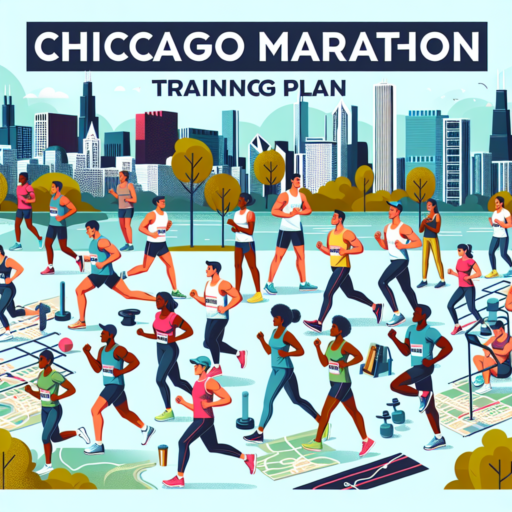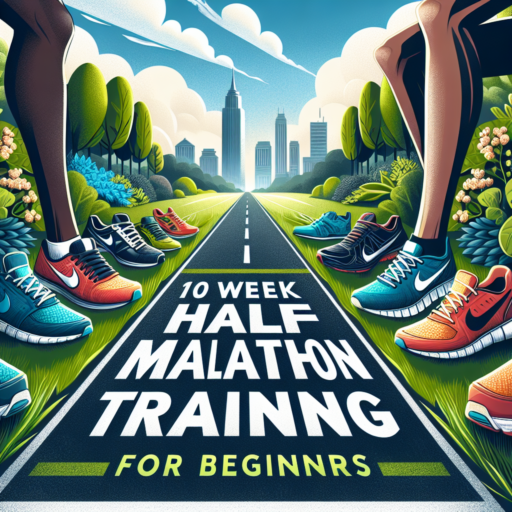What is the minimum amount of weeks to train for a marathon?
Training for a marathon is a significant commitment that requires careful planning, discipline, and an understanding of one’s physical limits. The minimum amount of weeks to train for a marathon largely depends on your starting point. For complete beginners, a training plan might extend over a longer period compared to someone with a solid running background. However, a common consensus among fitness experts and seasoned marathoners suggests that a minimum of 16 to 20 weeks allows for a gradual increase in mileage while minimizing the risk of injury.
During the initial weeks of training, the focus should be on building a base level of fitness. This is crucial not just for improving endurance, but also for preparing the body for the higher volume and intensity of training in the later stages. Incrementally increasing your long run each week is a key strategy employed in nearly all training plans, with a reduction in mileage every fourth week to allow for recovery. This approach aids in progressively enhancing your endurance while keeping training manageable and reducing the risk of burnout.
In the context of these 16 to 20 weeks, runners are advised to incorporate variety into their training. This includes a mix of long runs, speed work, cross-training, and rest days. Understanding the importance of rest and recovery is vital, as this allows your body to repair and strengthen. Additionally, integrating strength training and flexibility exercises can bolster your running efficiency and help prevent common running injuries. Each of these components plays a significant role in preparing you for the physical and mental challenges of completing a marathon.
How to prepare for the Chicago Marathon?
Preparing for the Chicago Marathon is a monumental task that requires both physical endurance and mental resilience. Whether you are a seasoned runner or a first-time marathoner, the right preparation can make all the difference in your performance and overall experience. Here, we discuss key strategies to help you get ready for one of the most iconic races in the world.
Develop a Training Plan
Embarking on a marathon requires a well-structured training plan that gradually increases in intensity. Ideally, start training at least 20 weeks before the marathon. Incorporate different types of runs, such as long runs for endurance, speed workouts to improve your pace, and recovery runs to aid in muscle recuperation. It’s crucial to listen to your body and adjust your plan as needed to prevent injuries.
Nutrition and Hydration
Proper nutrition and hydration play pivotal roles in your marathon training and performance. Focus on a balanced diet rich in carbohydrates, proteins, and healthy fats to fuel your long runs. During training, experiment with various types of sports drinks and energy gels to determine what works best for you. This experimentation is vital as it ensures you can manage your energy and hydration levels effectively on race day.
Equally important is the mental preparation for the marathon. Mental toughness can carry you through the tough miles, especially when physical fatigue sets in. Visualize the racecourse, practice positive self-talk, and devise strategies to deal with challenges you might face during the marathon. By preparing mentally, you’ll be in a strong position to tackle the 26.2 miles that lay ahead.
When to start training for the Chicago Marathon 2024?
Initiating marathon training at the correct time is pivotal for both seasoned runners and novices aiming to participate in the Chicago Marathon 2024. A common question among many is regarding the ideal time to begin preparing. The consensus among experts suggests starting your training 18 to 22 weeks before the marathon date. This timeframe allows adequate buildup for endurance, strength, and speed, ensuring you’re in optimal shape come race day.
However, your current level of fitness plays a crucial role in determining when you should start training. For beginners, leaning towards the 22-week plan provides extra weeks to gradually increase mileage without risking injury. On the other hand, experienced runners might find a 18-week plan sufficient, as they possess a stronger running foundation. It’s also essential to factor in time for a tapering period, allowing your body to recover and gain full strength before the marathon.
Adapting your training start date according to the Chicago Marathon’s specific challenges, such as its typically flat course and potential for varied weather conditions in October, can also enhance your performance. Incorporating weather-specific training and learning to maintain a steady pace across a flat course could be beneficial strategies. Hence, considering these aspects can tailor your training for success at the Chicago Marathon 2024.
How long does it take to run the Chicago Marathon?
The duration it takes to run the Chicago Marathon can vary widely among participants. Factors such as personal fitness level, training, weather conditions on race day, and overall health can greatly influence one’s finishing time. Historically, the average finish time for the Chicago Marathon has hovered around 4 hours and 30 minutes for runners worldwide.
Average Finish Times by Gender
When dissecting the completion rate based on gender, it’s interesting to note the slight differences. Men typically finish the marathon in about 4 hours and 20 minutes, whereas women tend to cross the finish line around 4 hours and 45 minutes. These averages offer a glimpse into the competitive spirit and endurance exhibited by all participants, irrespective of gender.
Impact of Training and Age
It’s crucial to consider the impact of thorough training and the role of age on marathon completion times. Younger runners, especially those in their 20s and 30s, might find themselves completing the marathon slightly quicker, thanks to higher endurance levels and possibly more rigorous training routines. However, the marathon proudly showcases finishers from all age groups, underscoring the event’s inclusive nature and the broad appeal of long-distance running. Dedicated training, irrespective of age, significantly contributes to improved finish times, highlighting the importance of preparation.








